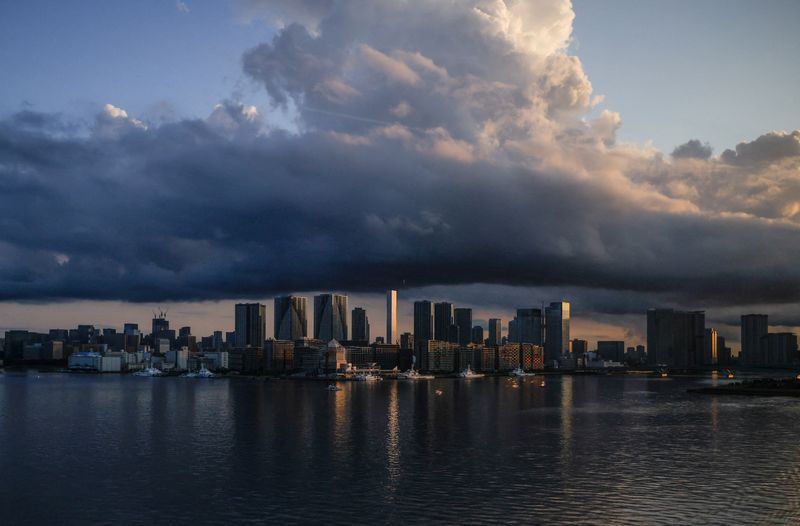TOKYO (Reuters) - An index measuring the prices Japanese firms charge each other for services hit a more than two-decade high in December, a sign inflationary pressure was building on rising freight costs and a rebound in demand from a pandemic-induced slump.
The services producer price index rose 1.1% in December from a year earlier, marking the 10th straight month of increases, Bank of Japan data showed on Wednesday. The level of the index, at 106.0, was the highest since July 2001.
The increase was driven by rising transportation costs with ocean freight fees spiking 38.6% in December from a year ago, the data showed, underscoring the impact global supply chain disruptions are having on Japan's service costs.
In a sign the economy's re-opening from COVID-19 curbs propped up demand, advertisement fees were up 6.4% in December.
Japan has not been immune to global commodity inflation with wholesale prices spiking 8.5% in December from a year earlier, marking the second fastest pace on record.
But core consumer inflation stood at just 0.5% in December, well below the BOJ's 2% target, as weak consumption discourages firms from passing on higher costs to households.
Policymakers say stronger wage growth would be crucial for inflation to sustainably accelerate toward the BOJ's target.

Higher wages would put further upward pressure on services prices, though many analysts doubt companies will increase pay aggressively when rising raw material costs and a resurgence in COVID-19 cases cloud the outlook.
A record wave of COVID-19 cases caused by the Omicron variant has forced Japan to expand regions subject to tighter curbs, threatening the country's fragile economic recovery.